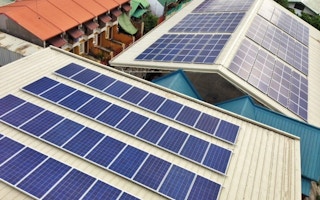What do the Philippines, Thailand, Malaysia and Sri Lanka have in common when it comes to renewable energy? A lot. All face energy challenges in the form of high electricity costs and unreliable grids, have access to abundant sunshine, and have recently opened up their solar markets. In other words, these are markets that are offering the biggest growth opportunities for the solar industry in the commercial-industrial segment.
Local and international players have already rushed in, but given the barriers to entering new markets, success depends on rapidly developing capabilities and bringing compelling propositions to their customers. Under these circumstances, strategic partnerships provide the shortest and most certain path to that success.
Dipping a toe in the water
While the potential for solar development is widely recognized within these markets, local companies have been hesitant to enter. Construction and engineering firms in the region already have the customer base, operational capabilities and a brand to leverage, but also understand that building solar-specific capabilities from the ground up is a long-term investment with high risk.
But there’s a solution: rather than entering alone, these businesses can reduce the risk by partnering with an international developer. Joint ventures and partnerships are safe approaches to doing business internationally for exactly this reason: they spread risk, allowing companies to fill gaps that can complement their capabilities in sourcing, engineering, financing, sales and marketing quickly and without significant investment.
Complementary strengths
“
Joint ventures and partnerships are safe approaches to doing business internationally for exactly this reason: they spread risk, allowing companies to fill gaps that can complement their capabilities in sourcing, engineering, financing, sales and marketing quickly and without significant investment.
Joint partnerships bring together complementary strengths and add value to every stage of commercial solar projects:
- Engineering: Typically, the international developer brings in system design expertise and experience working with a wide portfolio of projects, while local partners understand the specific needs and constraints of their market. With these combined assets, engineering becomes faster and more accurate. For example, grid configurations in the Philippines are among the most unique, complex and variable in the world. Local firms can understand and communicate these needs best, while the international developer is able to quickly design solutions that matches them.
- Sourcing: Both international developers and local companies bring different advantages to sourcing. The former’s scale of worldwide operations allows them to build stronger relationships and access lower pricing for primary components such as solar modules, racking, and power electronics (far lower than what newer, local companies can negotiate), while the latter are often in a better position to source balance of system accessories like cables, conduit and switches.
- Customer Base: Local companies have an unparalleled advantage to leverage their existing relationships and add solar services to their portfolios. These companies understand their customers’ needs, and have both the reach and cultural familiarity to communicate with them. Some of UGE’s most successful partners had limited prior experience with renewable energy, but came to the table with a large network of contacts that were eager to implement projects.
- Project execution: The international developer can manage the project and provide best practices gained from past installations. The local partner provides on the ground capabilities and experience managing logistics and obstacles in their region. In the Philippines, UGE’s partner, Orion Group International, was contacted by a family-owned business suffering from a power outage caused by a Typhoon. Orion was able to dispatch an emergency team with a system designed by UGE specifically for the client’s need. Within two days of the original call, the business had power restored.
- Finance: Project finance has been the key enabler for renewable energy in every mature market, and is even more so for emerging markets. International developers bring together a variety of trusted financiers and instruments that can remove the biggest obstacle facing potential customers: upfront costs. In the Philippines, financing allowed Calamba Doctors’ Hospital to offset 20% of electricity costs with solar, without affecting their cash flow.
- Policies: Permits, policies, and incentives vary from region to region, adding complexity for international developers. Local companies have a more personal grasp on their region’s governance and incentives, and can help navigate this process for their clients and partners.
- Competitive advantage: When it comes to energy, customers don’t always know what they need. They are looking for turnkey solutions from experienced providers they can trust. Partnerships bring together the international backing and track record of success with a locally based company who understands their unique needs and perspectives. While many competitors can usually provide one or the other, partnerships offer a winning a combination of both.
The solar revolution has already begun in Southeast Asia, but 2015 will be a year of rapid change and development. For companies that are hungry to get their foot in the door, strategic solar partnerships between international and local players offer a recipe for success. By blending economies of scale with local expertise, these partnerships are set to transform the economics and renewable energy landscape for businesses across the region.
Companies like UGE, with partners and projects in more than 90 countries, provide support throughout every step of the process, and offer a track record of success that is crucial for entering new markets.
Sandeep Sharma is the Philippines business development manager for UGE International, a leading developer of distributed renewable energy solutions for business and government. This article was written exclusively for Eco-Business.


















